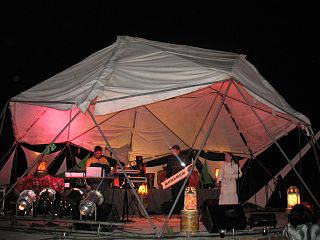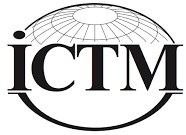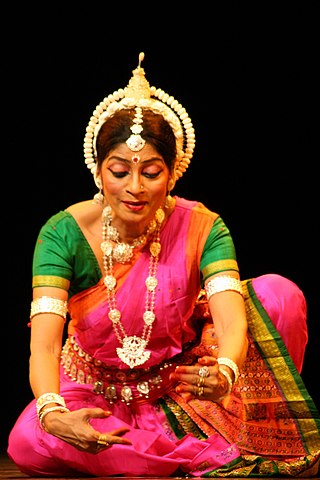Professional certification, trade certification, or professional designation, often called simply certification or qualification, is a designation earned by a person to assure qualification to perform a job or task. Not all certifications that use post-nominal letters are an acknowledgement of educational achievement, or an agency appointed to safeguard the public interest.

The United Nations (UN) is a diplomatic and political international organization with the intended purpose of maintaining international peace and security, developing friendly relations among nations, achieving international cooperation, and serving as a center for coordinating the actions of member nations. It is widely recognised as the world's largest international organization. The UN is headquartered in New York City, in international territory with certain privileges extraterritorial to the United States, and the UN has other offices in Geneva, Nairobi, Vienna, and The Hague, where the International Court of Justice is headquartered at the Peace Palace.

The European Organization for Nuclear Research, known as CERN, is an intergovernmental organization that operates the largest particle physics laboratory in the world. Established in 1954, it is based in Meyrin, western suburb of Geneva, on the France–Switzerland border. It comprises 24 member states. Israel, admitted in 2013, is the only non-European full member. CERN is an official United Nations General Assembly observer.

The International Paralympic Committee is an international non-profit organisation and the global governing body for the Paralympic Movement.

The United Nations System consists of the United Nations' six principal bodies, the Specialized Agencies and related organizations. The UN System includes subsidiary bodies such as the separately administered funds and programmes, research and training institutes, and other subsidiary entities. Some of these organizations predate the founding of the United Nations in 1945 and were inherited after the dissolution of the League of Nations.

The World DanceSport Federation (WDSF), formerly the International DanceSport Federation (IDSF), is the international governing body of dancesport and Para dancesport, as recognised by the International Olympic Committee (IOC) and the International Paralympic Committee (IPC).

Dancesport is competitive ballroom dancing, as contrasted to social or exhibition dancing. In the case of Para dancesport, at least one of the dancers is in a wheelchair.
The International Examiner is a free monthly Asian American newspaper and media nonprofit organization based in Seattle, Washington's historic Chinatown International District (CID). It was founded in 1974 by Gerald Yuasa and Lawrence Imamura to serve what the founders thought were the business interests of the Asian American community in Seattle's CID. In 2023, the IE published its 50th volume, identifying five areas of coverage: public safety, the arts, housing, transportation, cultural preservation, and commerce. With its print editions distributed across Seattle, and articles published on a rolling basis online, its total monthly readership is estimated at 20,000.
International Dance Day is a global celebration of dance, established in 1982 by the International Theatre Institute. It is promoted by the International Theatre Institute and the International Dance Council (CID) as Dance Day. The event takes place every year on 29 April, which is the anniversary of the birth of Jean-Georges Noverre (1727–1810), who is considered to be the "father" or creator of modern ballet The day strives to encourage participation and education in dance through events and festivals held on the date all over the world.
The Angelica or Angelike was a celebrated dance among the ancient Greeks, performed at their feasts and important celebrations. It was thus called from the Greek ἄγγελος, by reason, as Pollux assures us, the dancers were dressed in the habit of messengers.

The United States Department of the Army Criminal Investigation Division (CID), previously known as the United States Army Criminal Investigation Command (USACIDC), is the primary federal law enforcement agency of the United States Department of the Army. Its primary function is to investigate felony crimes and serious violations of military law and the United States Code within the US Army. The division is an independent federal law enforcement agency with investigative autonomy; CID special agents, both military and civilian, report through the CID chain of command to the CID Director, who reports directly to the Under Secretary of the Army and the Secretary of the Army. Unlike their counterparts at OSI and NCIS, Army CID does not have primary counterintelligence responsibilities.
The government of Syria is currently in a transitional period led by the Syrian Transitional Government. The seat of the government is located in Damascus, Syria. The previous government consisted of a President, a Prime Minister, and a legislative council with 250 seats.

The Earthdance Global Peace Party is the world's largest underground music and dance event for peace. Held annually since 1997, the event features hundreds of music artists, DJs, dancers, and speakers at local Earthdance events around the world, on the same weekend each year. The Earthdance event is aligned with the annual international Peace Day on September 21; and includes a global synchronized affirmation for peace. Earthdance is produced by Earthdance Global, and supports the Earthdance International non-profit organization.

The International Council for Traditional Music (ICTM) is a scholarly non-governmental organization which focuses on the study, practice, documentation, preservation, and dissemination of traditional music and dance of all countries. Founded in London on September 22, 1947, it publishes the Yearbook for Traditional Music once a year and the Bulletin of the ICTM three times a year. The organization was previously known as The International Folk Music Council (IFMC). In 1949, it helped found the UNESCO International Music Council and remains a non-governmental organization in formal consultative relations with UNESCO.

Achuta Manasa is an Indian Kuchipudi dancer.
Oleksii Zhylenko, was born in Kyiv, Ukraine. He is a professional Ballroom and Latin dance coach, a World class adjudicator, a professional ballroom dancer and a DanceSport competitor and choreographer.
Annick Chaymotty, known by the stage name Kumari Devayani, is an Indian dancer who performs in the classical Indian dance style Bharatanatyam. She has performed in India as well as in festivals and concert halls in the UK, France, Germany, Spain, Italy, Greece, Portugal, the Scandinavian countries, Estonia, and South Korea. Devayānī is an empanelled artist with the Indian Council for Cultural Relations. In 2009, she was awarded the Padma Shri.

Geeta Mahalik is an Indian Odissi dancer. The Government of India honoured her with the Padma Shri in 2014 for her services to the field of art and culture.

Nandkishore Kapote is a Kathak classical dancer of Indian origin. He is a distinguished guide for one of the PhD programmes at the Tilak Maharashtra University, as well as at the Sri Sri Centre for Kathak Research (SSCARK) at Sri Sri University.











